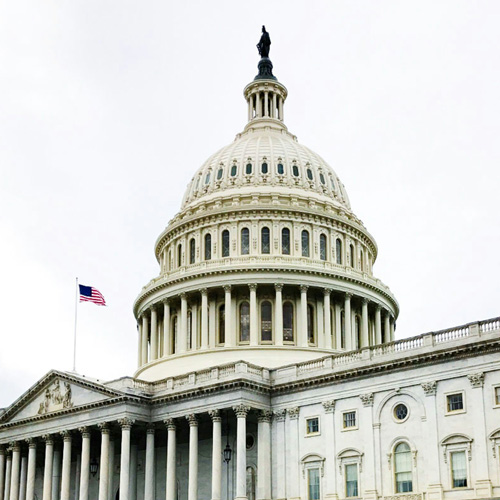Tax Law Impact on Estate Tax, ABLE Accounts, & 529 Plans
Earlier today, the President signed the sweeping tax cut and reform package that Congress passed on Wednesday. Although the law addresses numerous individual and business income tax matters, we want to focus on changes impacting two areas of importance for our clients: (i) estate, gift, and generation-skipping transfer (“GST”) taxes, and (ii) Achieving Better Life Experience (“ABLE”) accounts for individuals with disabilities and 529 college savings plans.
Estate, Gift, and GST Tax Changes
Effective January 1, 2018, the law doubles the federal estate, gift, and GST tax exemption from the previously-scheduled 2018 exemption of $5,600,000 per individual (or $11,200,000 per couple, with tax planning) to $11,200,000 per individual (or $22,400,000 per couple, with tax planning). Absent future changes in the law, these increases will sunset after 2025, so that the federal estate, gift, and GST tax exemption will revert in 2026 to the exemption under current law (effectively, $5,600,000 indexed for inflation in 2018 dollars). The law retains the basis step-up for appreciated assets at death and does not impact the separate $4,000,000 exemption for Illinois state estate tax.
What are some general planning takeaways due to these changes?
- While large second-to-die life insurance policies and more complicated estate tax reduction strategies, such as family limited partnerships and LLCs, will still be useful for some families, their benefits have been reduced, making them less compelling for many families, at least prior to any sunset of the law.
- For many married residents of Illinois and other states that have a separate state estate tax, an “A/B” plan that uses a family trust (also known as a credit shelter trust or a residuary trust) along with a marital gift or marital trust remains a beneficial structure, and the specific implementation recommendations accompanying such plans should continue to be followed.
- Simpler gift-giving strategies, such as annual exclusion gifts of cash and direct payments of tuition and medical expenses, remain useful, easy-to-implement planning strategies. For 2018, the annual exclusion amount is increasing to $15,000.
- In some cases, it ultimately will be disadvantageous to transfer highly-appreciated (or highly-appreciating) assets by lifetime gift due to the loss of a basis step-up. Individuals contemplating such gifts should weigh their potential estate tax-reduction benefits against their loss-of-basis-step-up disadvantages.
- Individuals and families can focus their attention to a greater extent on the many highly-meaningful, non-tax estate planning goals, such as structuring thoughtful inheritances, protecting assets, simplifying transitions at incapacity or death, and fostering positive family legacies.
ABLE Account and 529 College Savings Plan Changes
Section 529 college savings plans have been used for many years as a tax-advantaged savings vehicle for college. ABLE accounts were introduced in 2016 as a companion to 529 plans. They allow individuals with qualifying disabilities that commenced before age 26 to benefit from tax-free savings accounts for “qualified disability expenses” without interfering with their eligibility for means-tested public benefits. The law makes a number of helpful changes regarding ABLE accounts and 529 college savings plans.
The law increases the contribution limit to an ABLE account, allows the designated beneficiary to claim a “saver’s credit” for contributions to his or her own ABLE account, and permits rollovers from a 529 college savings plan to an ABLE account for the same beneficiary or member of his or her family, in each case subject to specified limitations. These welcome changes will make ABLE accounts more accessible to individuals with disabilities and thereby expand their usefulness as complements to, and in some cases replacements for, traditional supplemental needs trusts.
The law permits 529 college savings plans to be used not only for post-secondary education expenses, but also for K-12 public, private, or religious school expenses of up to $10,000 per year (including educational therapies for students with disabilities), thereby expanding their usefulness as well.
If you have any questions on how any of the tax law changes might impact you, we invite you to contact us. In the meantime, we offer you our best wishes for the holiday season.
This update has been prepared for general informational purposes only and should not be construed as legal advice on any specific facts or circumstances.
STAY IN THE LOOP
Subscribe to our free newsletter.
For the estate planning community, 2024 feels like the calm before the storm...
As with federal and Illinois tax and trust law, recent law changes related to special needs planning have been modest but important...
A federal court ruling and subsequent appeal have created uncertainty about the constitutionality of the Corporate Transparency Act, the federal statute that came into effect in 2024 with new reporting requirements for privately-held LLCs, corporations, and partnerships. While the appeal proceeds, the clock is ticking for such entities to either comply with the statute’s reporting requirements or potentially face stiff penalties...
This February marked the 25th anniversary of our practice. That milestone fills us with gratitude – for our incredible team, for the outstanding professional advisors with whom we have collaborated, and especially for the caring, thoughtful, and interesting individuals and families who have placed their trust in us...






